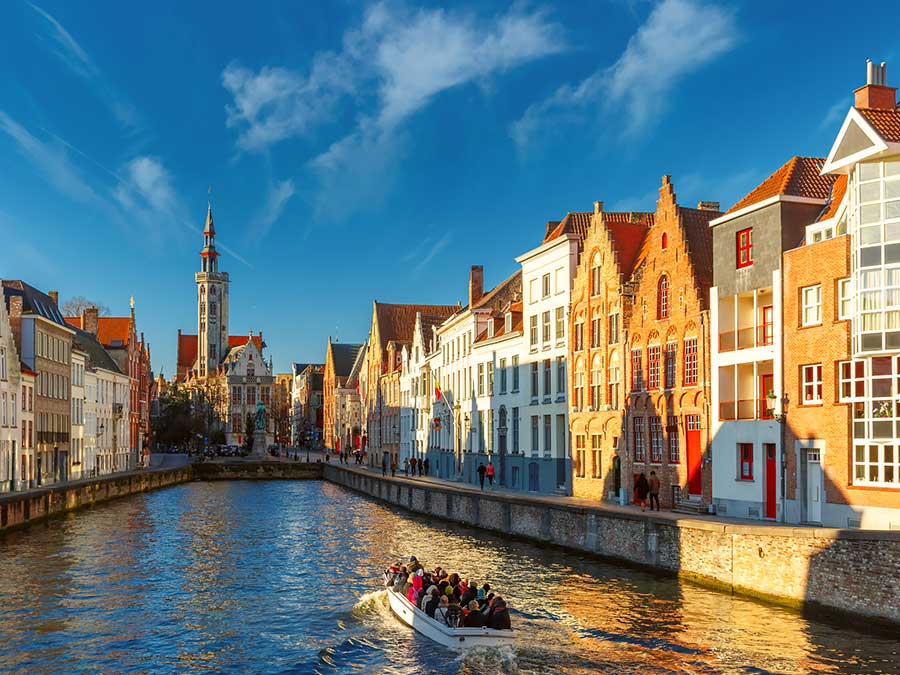
Countries you can't enter without travel insurance
Recent news about compulsory travel insurance for Thailand has highlighted the importance of having insurance when you go on holiday, but Thailand isn’t the only country that has ideas about travel insurance. We’ve found out more about why compulsory travel insurance could be a good idea for Thailand, and what other countries you can’t enter without having sufficient travel insurance cover.
Thailand

Thailand is an extremely popular holiday spot for those who want to relax, explore or party. It ticks all the boxes with its breath taking natural scenery, warm weather, gorgeous beaches and thriving nightlife. According to Time magazine, in 2013 Bangkok was the most visited city in the world, with around 16 million visitors. Last year, Thailand received 32.6 million visitors and numbers are set to keep rising.
As a result, tourism officials in Thailand are wanting to change the rules so that visitors to the country won't be allowed entry without valid travel insurance. And with good reason - according to Jaturon Phakdeewanit, director of the Tourism Safety and Security Standards in Thailand, visitors without travel insurance have cost Thailand at least 3 billion baht ($A117 million) a year for their medical treatments at state hospitals. The change to legislation would likely be implemented with travel insurance document inspection at the immigration counters upon arrival.
With Thailand being such a popular destination for travellers, this change will affect many. Even if it’s not an entry requirement, we’ve seen enough claims to know that travel insurance is very important when visiting Thailand. From food poisoning to cuts, here are some examples of medical claims we’ve had:

Food poisoning is a common occurrence, with a couple of very acute cases resulting in hospital stays. If your holiday is ruined by food poisoning, the last thing you need is to worry about hospital bills too – in this case, get in touch with us so we can talk to the hospital and help you get the care you need, without the added stress.
One of the most unexpected food poisoning consequences we’ve heard of is when a traveller fainted in their accommodation after a bad bout of food poisoning, causing lacerations to their face. This unfortunate traveller needed emergency treatment at their accommodation, followed by emergency transfers to the mainland, and surgical attention.
We’ve seen plenty of claims for accidents that have caused injuries, too. Aside from the all-too-common moped accident stories, another claim that pops up is a cut that requires stitches or becomes infected. From coral cuts, to standing on sharp objects in bare feet, cuts can be common and often need medical attention. One unlucky traveller stood on a piece of metal on the beach, which became costly after receiving stitches and medical dressing.
It’s easy to see how unexpected accidents and illnesses can happen in a place like Thailand. As these examples show, almost anything can happen and even seemingly small things can lead to bigger problems. If you want to know more about how to cope with sickness overseas, check out this article.
We can understand why Thailand officials would like to make changes to the rules, as unfortunately there are a few travellers who don’t realise the importance of travel insurance until they’re involved in an accident and need cover. As Phakdeewanit’s comments show, medical care for tourists can also be a huge cost for the country.
Some other countries have already put legislation in place about this, and others have notoriously high medical costs. Here are some other countries you should be aware of:
Antarctica

Antarctica is a tricky one. It’s a vast, icy continent inhabited by penguins, with virtually no inhabitable land. It also has no towns or cities (unless you count large groups of penguins!) and no government. The Antarctic Treaty means that no country can establish colonies there, although there is a research base that can be accessed by flights from New Zealand. Unless you’re working with a government agency, the only way to see Antarctica is on a cruise, of which there are quite a few to choose from.
If you want to visit this icy continent, the first step is to book a cruise. There are plenty to choose from, with varying levels of size and luxury. All cruises destined for Antarctica have comprehensive packing lists and very specific requirements, because the conditions are typically extreme and can be quite hostile. As a result, every cruise that goes to Antarctica requires compulsory travel insurance, including provision for medical evacuation and weather cancellation
Schengen countries

The Schengen Area is in central Europe and covers 27 countries that have agreed to abolish their internal borders. The 27 countries in the Schengen Zone are: Austria, Belgium, Croatia, Czech Republic, Denmark, Estonia, Finland, France, Germany, Greece, Hungary, Iceland, Italy, Latvia, Liechtenstein, Lithuania, Luxembourg, Malta, Netherlands, Norway, Poland, Portugal, Slovakia, Slovenia, Spain, Sweden, and Switzerland. Tourists to any of these countries only need one visa in order to access the entire Schengen zone.
One of the regulations of the Schengen visa is that all visa applicants must have a travel insurance policy that includes medical cover and evacuation. New Zealand and Australian citizens don’t have to apply for a Schengen visa as they’re granted a 90-day visa automatically on entry, however travel insurance is still a requirement and we recommend carrying printed copies of all important documentation, including travel insurance documents. For other European travel recommendations, see SafeTravel.
UAE

The United Arab Emirates encompasses some beautiful cities, including the glittering and lavish Dubai and Abu Dhabi. Travel insurance, which includes health insurance, is mandatory for visitors to enter the United Arab Emirates. As with the Schengen Area, the UAE doesn’t require New Zealanders or Australians to apply for entry visas, as we’re automatically granted a 30 day visa on arrival. However, it’s still a requirement for visitors in general and we recommend having proof of travel insurance on you anyway, as some officials may request to see it.
USA

The United States of America is a vast nation with plenty on offer, from bustling cities and the stars of Hollywood, to beautiful national parks, deserts and mountains. It’s also known to offer some of the best healthcare in the world – at the steepest price. Bypass surgery, for example, costs around $75,000 in the USA, while it costs around $42,000 in Australia, the next most expensive, and $16,000 in the Netherlands. Needless to say, any medical care required while you’re in the States could possibly be financially crippling if you don’t have the correct travel insurance.
For residents of the United States, healthcare is not provided by the state and it’s widely regarded that health insurance is extremely important. So while travel insurance isn’t compulsory for getting a visa to enter the USA, this is one country where you should definitely consider having travel insurance if you visit.
Even in countries where travel insurance isn’t compulsory, we’ve seen plenty of claims for small, unexpected accidents that can easily become big problems. If you’re heading on holiday, make sure you get travel insurance – you never know when you’ll need it.
The content of this article is general and provided for information purposes only. Southern Cross Travel Insurance (SCTI) doesn’t guarantee or warrant the accuracy, completeness or currency of any article.
This article may contain hyperlinks to other websites owned or operated by third parties, or references to third party products or services. SCTI isn’t responsible for, and makes no recommendation about, the content or accuracy of any third party website, or for the suitability or performance of any product or service. The inclusion of a link in this article doesn’t imply that SCTI endorses the website or third party product/service.





